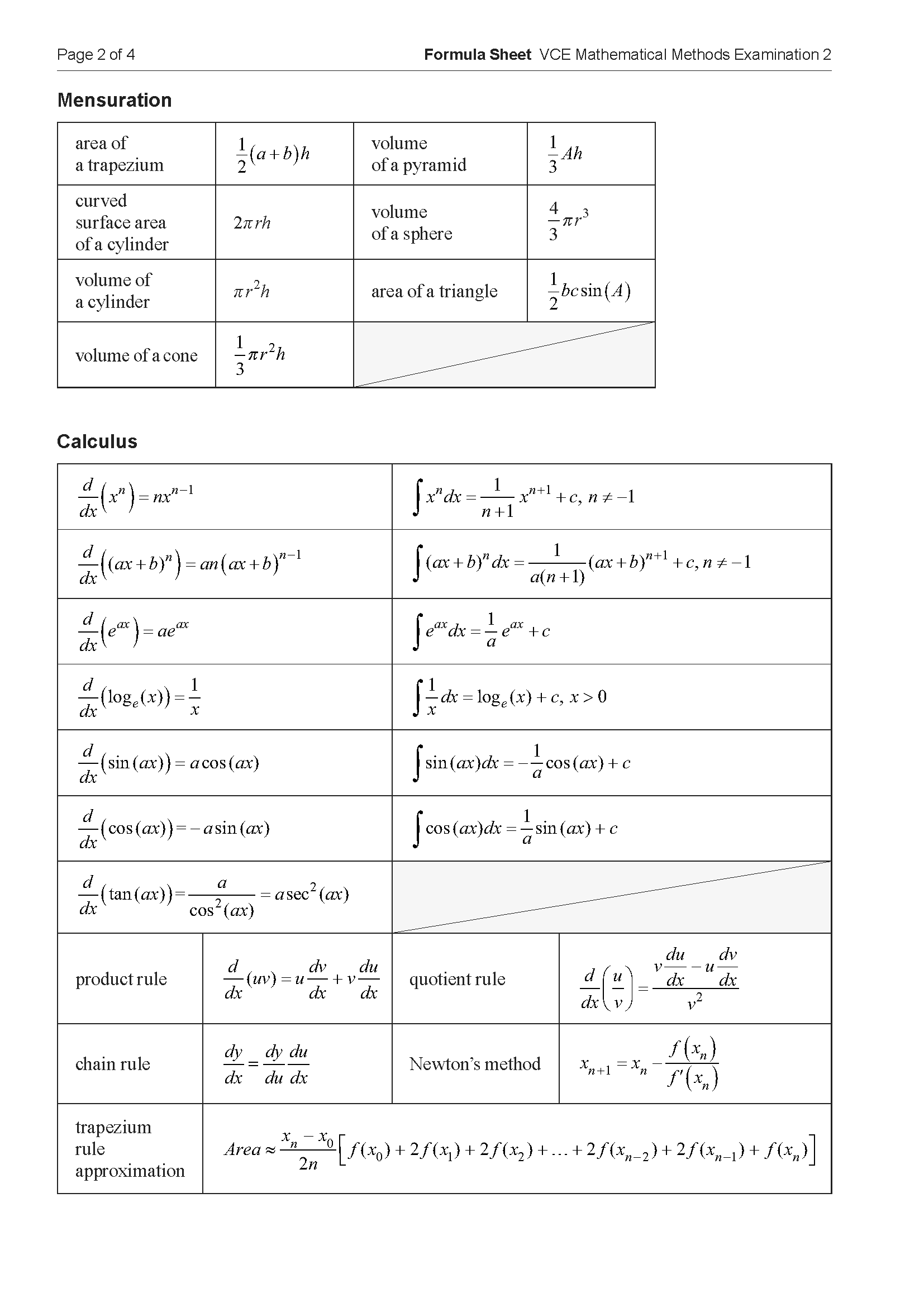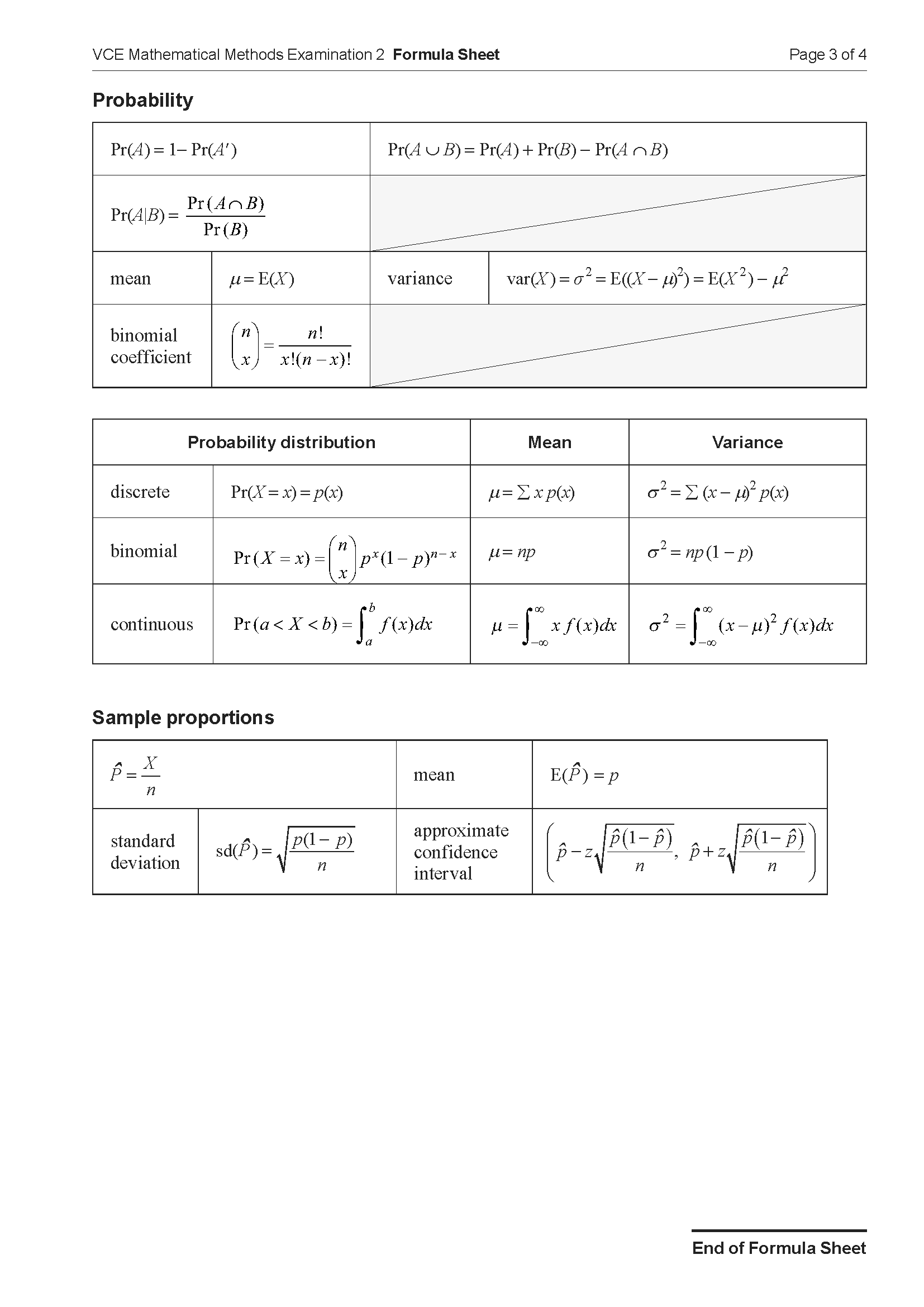2019 VCE Maths Methods Mini Test 1
Number of marks: 10
Reading time: 2 minutes
Writing time: 15 minutes
Section A – Calculator Allowed
Instructions
• Answer all questions in pencil on your Multiple-Choice Answer Sheet.
• Choose the response that is correct for the question.
• A correct answer scores 1; an incorrect answer scores 0.
• Marks will not be deducted for incorrect answers.
• No marks will be given if more than one answer is completed for any question.
• Unless otherwise indicated, the diagrams in this book are not drawn to scale.
Let \(f: R \to R, f(x) = 3\sin\left(\frac{2x}{5}\right) - 2\).
The period and range of \(f\) are respectively
- A. \(5\pi\) and \([-3, 3]\)
- B. \(5\pi\) and \([-5, 1]\)
- C. \(5\pi\) and \([-1, 5]\)
- D. \(\frac{5\pi}{2}\) and \([-5, 1]\)
- E. \(\frac{5\pi}{2}\) and \([-3, 3]\)
The set of values of \(k\) for which \(x^2 + 2x - k = 0\) has two real solutions is
- A. \(\{-1, 1\}\)
- B. \((-1, \infty)\)
- C. \((-\infty, -1)\)
- D. \(\{-1\}\)
- E. \([-1, \infty)\)
Let \(f: R\setminus\{4\} \to R, f(x) = \frac{a}{x-4}\), where \(a > 0\).
The average rate of change of \(f\) from \(x=6\) to \(x=8\) is
- A. \(a\log_e(2)\)
- B. \(\frac{a}{2}\log_e(2)\)
- C. \(2a\)
- D. \(-\frac{a}{4}\)
- E. \(-\frac{a}{8}\)
End of Section A
Section B – No Calculator
Instructions
• Answer all questions in the spaces provided.
• Write your responses in English.
• In questions where a numerical answer is required, an exact value must be given unless otherwise specified.
• In questions where more than one mark is available, appropriate working must be shown.
• Unless otherwise indicated, the diagrams in this book are not drawn to scale.
Let \(f: (\frac{1}{3}, \infty) \to \mathbb{R}\), \(f(x) = \frac{1}{3x-1}\).
a.
i. Find \(f'(x)\). 1 mark
ii. Find an antiderivative of \(f(x)\). 1 mark
b. Let \(g: \mathbb{R}\setminus\{-1\} \to \mathbb{R}\), \(g(x) = \frac{\sin(\pi x)}{x+1}\).
Evaluate \(g'(1)\). 2 marks
a. Let \(f: \mathbb{R}\setminus\{\frac{1}{3}\} \to \mathbb{R}\), \(f(x) = \frac{1}{3x-1}\).
Find the rule of \(f^{-1}\). 2 marks
b. State the domain of \(f^{-1}\). 1 mark
End of examination questions
VCE is a registered trademark of the VCAA. The VCAA does not endorse or make any warranties regarding this study resource. Past VCE exams and related content can be accessed directly at www.vcaa.vic.edu.au

